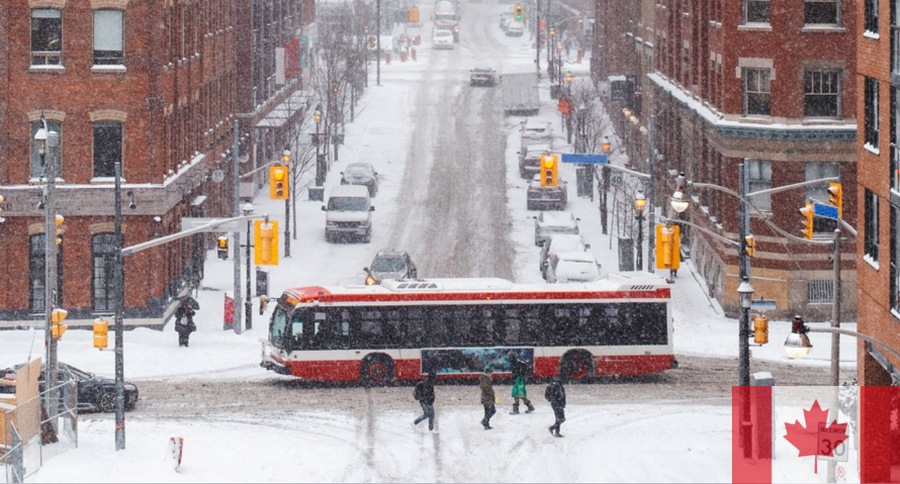A winter storm pounded portions of Ontario with snow and rain, prompting a rainfall warning for Toronto on Tuesday night.
Rainfall in the city and its environs is expected to range from 20 to 35 millimeters, according to Environment Canada. The rain is expected to gradually decrease during the evening and overnight.
In line with the agency’s prediction, the Ontario Provincial Police issued a warning that the heavy precipitation might produce dangerous driving conditions similar to those generated by snow.
Sgt. Kerry Schmidt brought attention to the possibility of standing water, which, like wet or slick roadways, might cause hydroplaning.
“Please, just exercise caution,” Schmidt advised, according to CBC News. “Allow yourself plenty of time to adapt to driving conditions that may change.”
The most recent round of severe weather in Toronto was supposedly brought on by a low-pressure system that developed in the Gulf of Mexico and moved northward into Ontario.
Environment and climate change Canada’s senior climatologist, David Phillips, said that the cold air over the province is being forced to collide with the warmer air and moisture from the Gulf of Mexico.
For Phillips, this means a combination of precipitation and a slow but steady increase in temperature. Winds of up to 50 km per hour are also possible throughout the storm.
A storm watch was in effect for portions of eastern and central Ontario on Tuesday into Wednesday morning.
Central Ontario, encompassing Sault Ste. Marie and Greater Sudbury, is expected to receive the heaviest snowfall, with 15 to 30 centimeters of snow anticipated by Environment Canada beginning Tuesday afternoon.
Ottawa and the neighboring areas are also under a storm watch, as 10 to 20 cm of snow, potentially mixed with freezing rain and ice pellets, is predicted by Environment Canada.
Insured damages totaling $330 million were caused by the ice storm that struck Ontario and Quebec last spring, ranking among the most costly weather occurrences of 2023.
Meanwhile, insured losses in Ontario of $340 million were caused by severe storms that happened during the summer.







